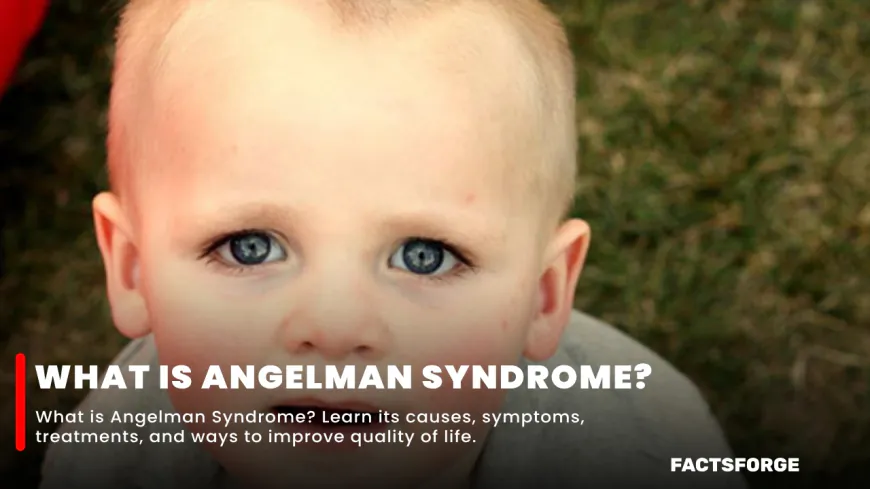What is Angelman Syndrome?
What is Angelman Syndrome? Learn its causes, symptoms, treatments, and ways to improve quality of life.

Angelman syndrome (AS) is a rare genetic neurodevelopmental disorder. First described by British physician Harry Angelman, it is characterized by neurological developmental delays, speech impairments, movement coordination issues, and a persistent happy demeanor.
This genetic condition typically results from a deficiency or dysfunction of the UBE3A gene on chromosome 15. It occurs in approximately 1 in 12,000-20,000 live births and affects individuals throughout their lives. However, with proper treatment, its symptoms can be managed effectively.
Angelman syndrome manifests through various physical, mental, and behavioral symptoms:
Angelman syndrome is usually caused by a deficiency or dysfunction in the UBE3A gene on chromosome 15. This can happen in several ways:
Angelman syndrome is diagnosed through genetic tests and clinical evaluations. Genetic testing can detect mutations in the UBE3A gene through DNA analysis. Additionally, neurological tests like EEG can be used to evaluate epileptic seizures.
Although there is no definitive cure for Angelman syndrome, there are various ways to manage its symptoms:
With appropriate treatment and family support, individuals with Angelman syndrome can lead happy and fulfilling lives. Early intervention and therapy are critical to improving their social and motor skills.
Yes, Angelman syndrome is a genetic disorder, typically caused by mutations in the UBE3A gene.
Initial symptoms are usually noticed between 6-12 months, but a definitive diagnosis is typically made between 1-4 years of age through genetic testing.
Speech skills are usually limited, but alternative communication methods can be learned.
Yes, many individuals with Angelman syndrome can walk, but they may have balance issues.
Symptoms of Angelman Syndrome
Causes of Angelman Syndrome
How is Angelman Syndrome Diagnosed?
Treatment of Angelman Syndrome
Quality of Life for Individuals with Angelman Syndrome
Frequently Asked Questions
Is Angelman syndrome genetic?
At what age is Angelman syndrome diagnosed?
Can individuals with Angelman syndrome develop speech?
Can individuals with Angelman syndrome walk?







